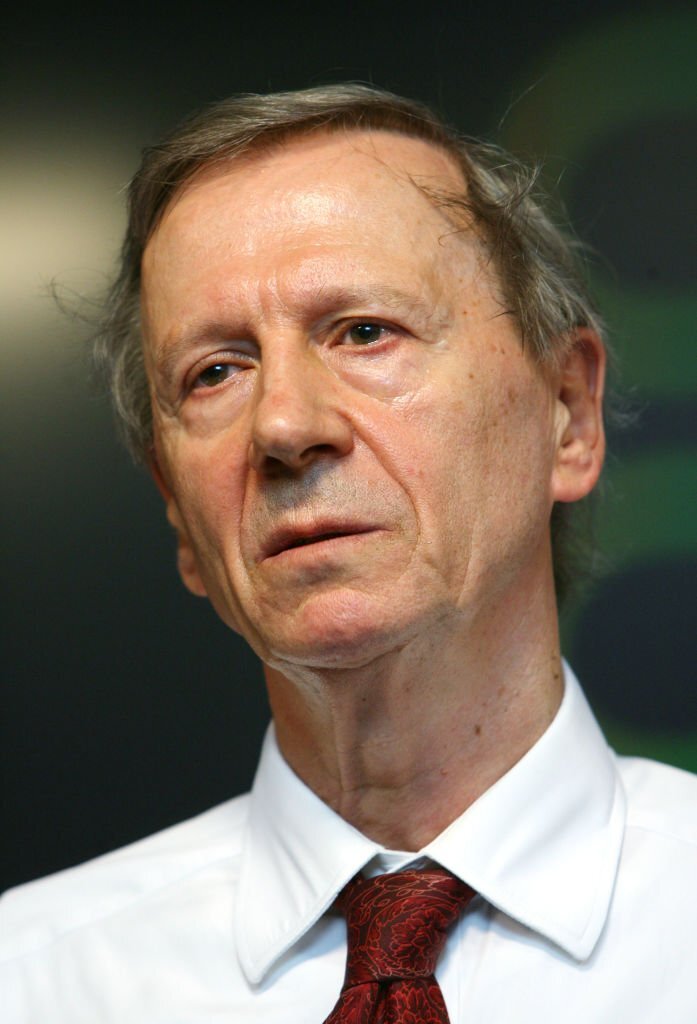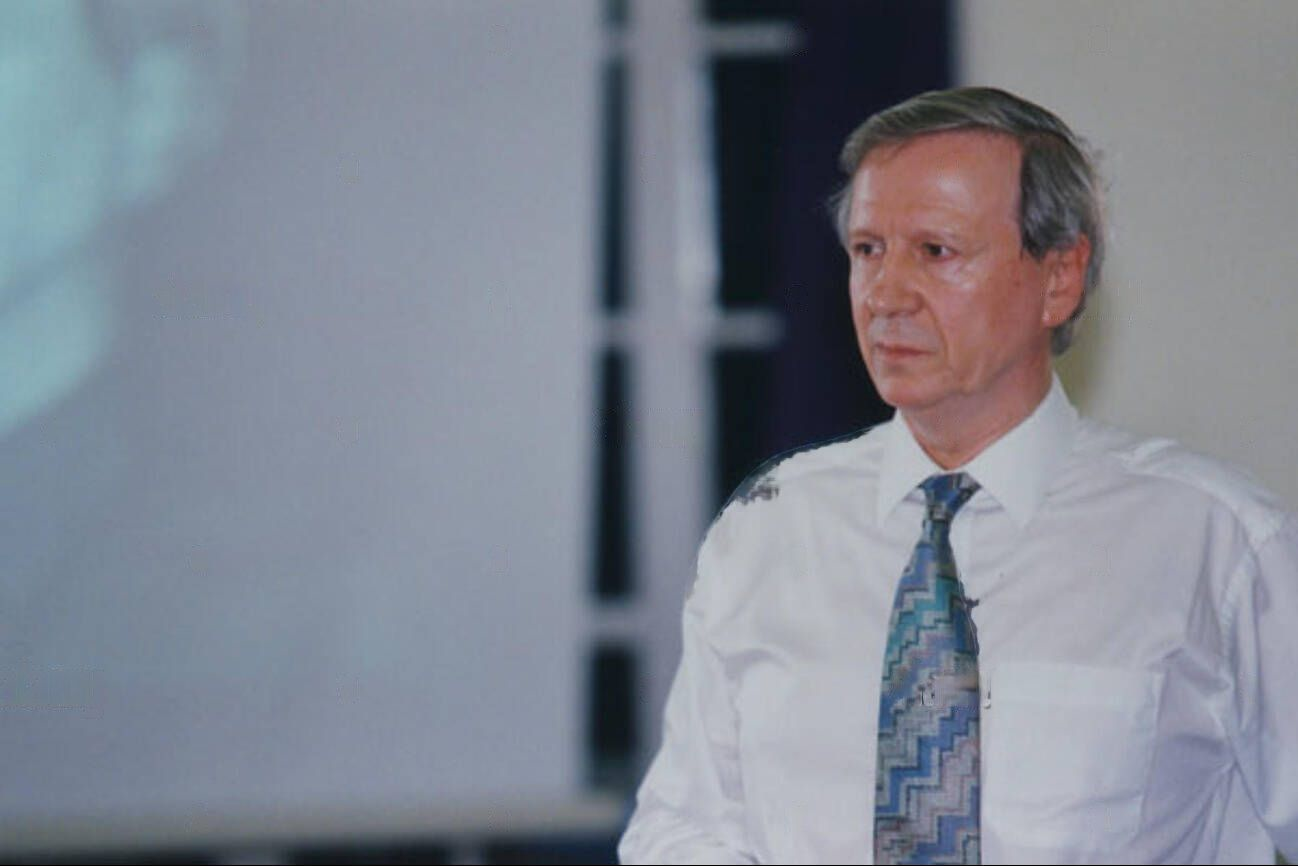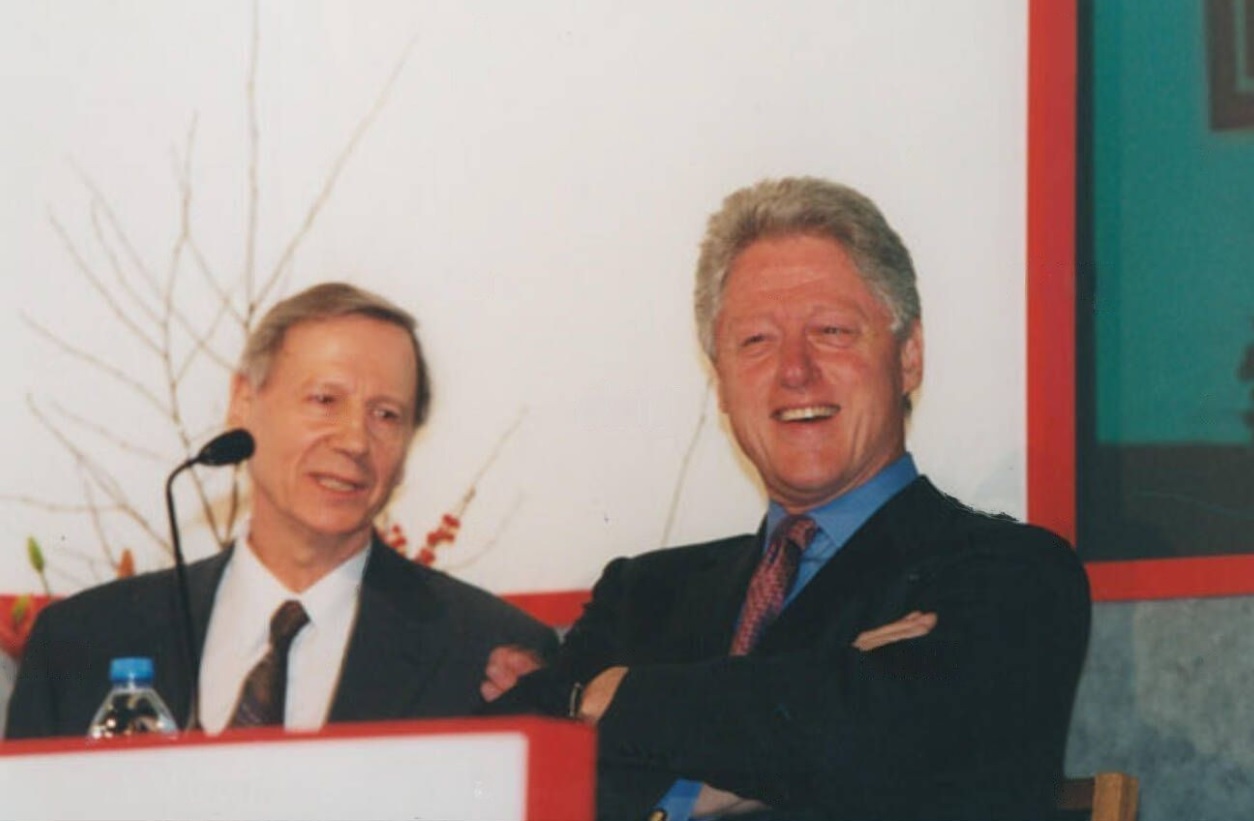Anthony Giddens
[1938-]
Anthony Giddens, a British sociologist, is renowned for his structuration theory and his comprehensive understanding of contemporary societies.
How has Gidden's career evolved ? Learn about him and his life in the following article.
I. Anthony Giddens biography
One such theorist is Anthony Giddens, whose contributions to sociology and political theory, particularly those made while serving as Tony Blair's advisor—have had a significant influence on modern politics. Giddens is credited with creating structuration theory and Third Way theory; he has written more than 30 books and 200 articles, and is one of the most well-known figures in contemporary socialist thought.

1. Who is Anthony Giddens?
On January 18, 1938, Anthony Giddens was born in Edmonton, North London. In 1959, he earned his degree from Hull University. He is a fan of Tottenham Hotspur and was raised in North London. For his master's thesis at the London School of Economics (LSE), he wrote a paper titled Sport and Society in Contemporary Britain.
After receiving his doctorate from the University of Cambridge in 1974, he has published roughly one book per year since then, contributing to some of the most important sociological works. In fact, many colleges use sociology as their required introductory textbook.
2. Anthony Giddens early career
Anthony Giddens began with teaching social psychology at the University of Leicester. His own theories also had their origins in that location. He later became a professor of sociology for the King's College students in Cambridge. Later, in 1985, he co-founded "Polity Press," an international publisher. They published books pertaining to social science and the humanities through Polity Press. Then, while still holding a professorial position, he was named the London School of Economics' director.
He is renowned for his Structuration theory as well. Structure aids in comprehending and learning the relationship that a person has to the social system. Additionally, his perspective on contemporary societies has been astoundingly comprehensive. . With 34 books that have been published in more than 25 different languages, he has made a significant contribution to the field of sociology. People have always benefited from understanding how society and the social system operate thanks to his theories.
He has also served on the Institute for Public Policy Research's Advisory Council. He has been given the title of Baron Giddens and is a member of the House of Lords, the British Parliament. Additionally, Anthony Giddens has at least 12 degrees from various universities.
3. Anthony Giddens Contribution
Anthony Giddens has contributed greatly to sociology as a great political advisor, educator, and prolific author. Both those from his era and those today have greatly benefited from his lectures and social theories. Tony Blair, the British Prime Minister, has praised his wise counsel. In order to help people understand his theories, he has also written a number of books.
II. Anthony Giddens Major Works and Theory
1. Anthony Giddens on Theoretical Development
Although he is primarily recognized as a social scientist, it would likely be more accurate to describe his work as spanning a number of social science fields, such as psychology, linguistics, economics, cultural studies, and politics. It is fair to say that, despite the fact that some of his writing is highly abstract and complex, he has a practical approach to writing that makes his work very approachable.
The body of his writing contains a number of recurring themes, despite the fact that he has written on a wide range of diverse topics. His work is typically divided into three categories, according to the general consensus.
- The first of these, or what might be called "sociological inquiry," is a review of sociology's function.
- The second, known as "structuration theory," examines how social structures and people's agency, or freedom to choose their own actions, interact. His reputation was firmly established at this point in his career.
He focuses on the relationship between the self and society in the third category, which is largely based on an analysis of how individuals develop a sense of their own identity.

2. Anthony Giddens on Sociological Analysis and Structural Theory
Prior to the middle of the 1970s, his work took a much more skeptical stance toward the distinction between macro sociology, which places an emphasis on explaining society in broad, institutional terms, and micro sociology, which places an emphasis on a more personal level. Giddens preferred to demonstrate that any comprehensive sociological theory or model should incorporate both of these two approaches—the macro and the micro. He may have believed that understanding society shouldn't be reduced to an effort to explain the big picture. In fact, it shouldn't be limited to examining people's daily experiences.
According to Giddens, sociologists should attempt to understand the social world in terms of both the major structures and how these are then perceived and utilized by the inhabitants. In this area of his work, social actors are viewed as reflexive and socially adaptive, as opposed to being completely shaped by their social environment. He believed that sociologists should view social structures and the individuals who live in them as having a direct impact on society.
Giddens' subsequent consideration of the mutually influencing ways in which social structures and people's agency interact followed directly from this work on the proper methodology for sociology. He was especially interested in the degree to which individuals or larger social forces serve as the foundation for how society is shaped and reshaped within this. Furthermore, he has made the argument that although it is obvious that people do not have complete freedom to act as they please, they do still have a certain amount of freedom to do so in a way that reproduces and modifies the social structures that oppress them.
His work differs from conventional sociological theory in this regard because, contrary to what has typically been assumed, people, not large institutions, are the driving force behind social change, according to his theory. He also contends that social theorists should recognize that structure and agency are components of the same process, which is perhaps more significant. In other words, it makes no sense to talk about one without also taking the other into account. In order to summarize this, he created the term "duality structure," which suggests that agents create society while also being constrained by it.
3. Anthony Giddens on Modernity & Identity Theory
According to Giddens, people who live in traditional societies do not have to give their individual actions a lot of thought or consideration. The main reason for this is that people have few options. Post-traditional societies, however, are much less constrictive and offer people a much wider range of options. Individual actions therefore require much more thought. Because there are more options available, people must become much more reflexive. More than ever before, life in late modern and modern societies is a project that must be completed.
Giddens continues by asserting that people in "post-traditional" societies have started to develop a very different perspective of themselves than those who lived in earlier times. Nowadays, self-identity is approached in a much more reflexive way, giving people more freedom to decide what they want to do and who they want to be.
Intriguingly, he also believed that this had a cost, especially in light of the fact that people are becoming more and more reliant on "expert systems," where knowledge is held by people and organizations that are typically operating apart from most people but still have significant influence over them.
He admits that traditional societies may have been more rife with social injustice and inequalities, but they also may have had a greater sense of certainty about a person's position within the social hierarchy. Giddens contends that the freedoms of post-traditional society come with increased stress and what he terms "manufactured uncertainty."
4. Anthony Giddens on Contemporary Politics & Social Justice
The age of late/high modernity has enabled the development of what he refers to as a "post scarcity economy," in which the vast majority of people's basic survival needs are met, in addition to a radical change in how people conceptualize their own identities. The general public can then concentrate on emancipation and the growth of new social movements as a result of this.
Anthony Giddens is therefore quite optimistic about the social structures in these kinds of societies, mainly because he thinks that what he calls a "third way," which does not rely on traditional left- or right-wing ideas, is assisting in the establishment of a fairer and more democratic social structure. He thinks that capitalism is the only viable alternative and that communism is a thing of the past. However, modern social divisions are more driven by individual lifestyle decisions than by traditional class. This implies that we now have a lot more room to maneuver.

III. Anthony Giddens Awards
Giddens, of Southgate in the London Borough of Enfield, was given a life peerage on June 16, 2004, and now represents the Labour Party in the House of Lords.
In 1993, he was chosen to join the Academia Europaea. Additionally, he is a fellow of the Chinese Academy of Social Sciences and the American Academy of Arts and Sciences.
The Portuguese government awarded him the Grand Cross of the Order of Prince Henry the Navigator in 1999.
The Prince of Asturias Award for Social Sciences was given to Giddens in 2002.
Giddens received the Arne Naess Chair and Prize at the University of Oslo in Norway in June 2020 in honor of his contributions to the investigation of environmental problems and climate change. James Lovelock, David Sloan Wilson, and Eva Joly have all held the position before .
Additionally, he has received over 15 honorary doctorates from various universities, including most recently from Jagiellonian University (2015), the University of South Australia (2016), Goldsmiths, University of London (2016), and Lingnan University.
IV. Anthony Giddens Books
Anthony Giddens has written over 30 books and 200 articles in his lifetime, as was previously mentioned. As of right now, he has published one book annually for the past 30 years, and his work has been translated into at least 25 different languages. Many of his ideas are still taught in sociology classes today.
In his books, he presents cutting-edge sociology theories and critiques earlier sociological writing by well-known authors like Marx and Weber. He uses an interdisciplinary approach to his work, developing his concepts through the use of psychology, political science, economics, history, and philosophy. The majority of his work can be divided into his three career eras.
1. 1st Stage
At this point in his career, he reexamined the foundations of society and sociology while also critically critiquing earlier theories and ideologies. Capitalism and Modern Social Theory (1971) and New Rules of Sociological Method are the two pieces that stand out the most from this era (1976).
2. 2nd Stage
He created the Theory of Structuration during this phase. Central Problems in Social Theory (1979) and the Constitution of Society are two books that helped establish and elaborate on his theory (1964). He began to receive international attention during this time due to his distinctive socialist theories.
3. 3rd Stage
At this point in his career, he concentrated on modernity, globalization, and politics. In this passage, he criticizes postmodernism and the effects of modernity on people. He created a theory of modernity at this time, according to which the advancement of capitalism, industrialism, political authority, and military might serve as indicators of modernity. But during this period, he also developed the Third Way, a highly divisive political theory that was influenced by Utopian Realism. Consequence of Modernity (1990), Modernity and Self-Identity (1991), The Transformation of Sincerity (1992), Beyond Left and Right (1994), and The Third Way: The Renewal of Social Democracy are among the significant works from this time period (1998).
V. Anthony Giddens Quotes
- “When the image of Nelson Mandela may be more familiar to us than the face of our next-door neighbor, something has changed in the nature of our everyday experience.”
- “A person's identity is not to be found in behavior...but in the capacity to keep a particular narrative going”
WHAT IS YOUR IQ?
This IQ Test will help you test your IQ accurately
Maybe you are interested
